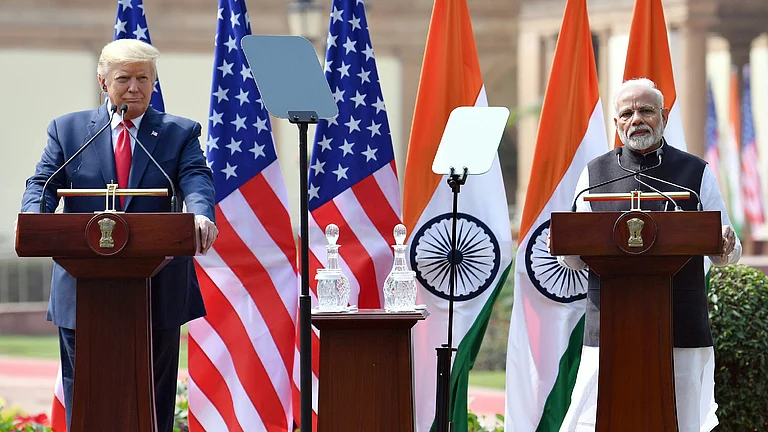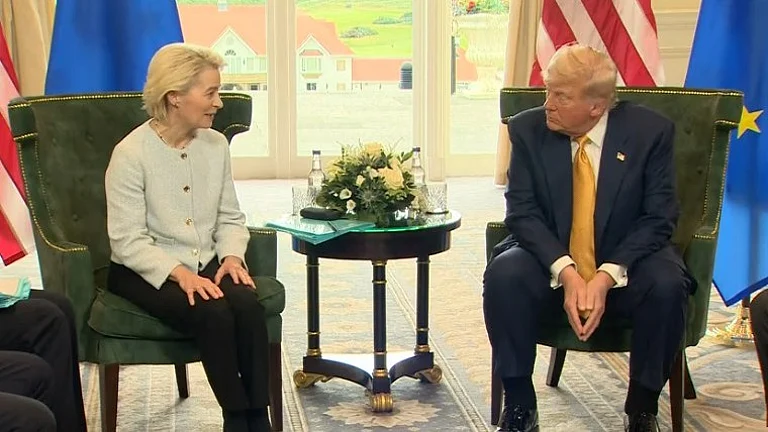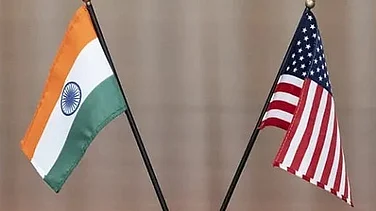
Trump warns U.S. may unwind trade deals if tariffs ruled illegal.
Appeals court declared several reciprocal tariffs unlawful; Supreme Court review pending.
Experts note tariffs raise costs for U.S. importers, fueling inflation.
Legal analysts say Trump leveraging uncertainty to strengthen negotiating position.
U.S. President Donald Trump on Wednesday cautioned that the United States might need to ‘unwind’ trade agreements with the European Union, Japan, South Korea, and others if it loses a tariffs case currently heading to the Supreme Court. He further said that a defeat could cause the country “to suffer so greatly.”
While addressing reporters at the White House, Trump said that his administration plans to challenge a recent US appeals court decision that ruled many of his tariffs were unlawful. Despite the challenges, he said that he is confident that the Supreme Court would ultimately side with his administration, Reuters reported.
He said, "We made a deal with the European Union where they're paying us almost a trillion dollars. And you know what? They're happy. It's done. These deals are all done. I guess we'd have to unwind them.”
His recent comments mark the first time the U.S. President explicitly suggested that trade agreements with major partners negotiated separately from the tariffs could be invalidated if the Supreme Court upholds last Friday's ruling. He further suggested that reversing the tariffs would be financially damaging.
Trade experts however point out that the tariffs are paid by U.S. importers, not foreign companies and economists have warned that such duties tend to drive up inflation domestically.
“Our country has a chance to be unbelievably rich again. It could also be unbelievably poor again. If we don't win that case, our country is going to suffer so greatly, so greatly,” Trump said.
The appeals court ruling addressed the legality of what Trump calls “reciprocal” tariffs first imposed as part of a trade war in April, as well as a separate set of tariffs imposed in February against China, Canada and Mexico. The decision does not impact tariffs issued under other legal authority, such as those on steel and aluminium imports.
As per experts, Trump’s comments on the cost of rescinding the tariffs were intended to convince the Supreme Court that removing the tariffs would unleash major economic chaos. According to a Reuters report, Ryan Majerus, a former senior US trade official who is now a partner with law firm King & Spalding, said it had been clear from the start that the trade deals with the EU and other trading partners were framework agreements that were subject to change, not fully fledged trade agreements.
“The president’s announcement today that the deals could be unwound reflects an effort to maximise leverage on the U.S. side,” he noted.
Legal and trade experts say the Supreme Court's 6-3 majority of Republican-appointed justices may slightly improve Trump's odds of keeping in place at least some of the tariffs after the appeals court ruled 7-4 last week that they are illegal. However, they say it is difficult to predict exactly what the court will do, given rulings in past cases and the unprecedented nature of the challenge.


































